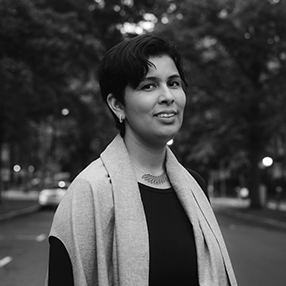Study Guide Toward Naturalization of the Mouth
from an inherited notebook (I) How many teeth does the snail have? tens of thousands upon the tongue. thousands those who fell loose from within my home. a flesh so soft so full of bite. I molar– EXCEPTION––you the fangs. (II) How many words does English have? tens of thous- ands & tens of thousands obsolete.–––EXCEPTION FOR you I earned –– a credential in what was said to break in the mo uth. (III) Who are the candidentsates for president of the USA? contra. crisis. turning point: . نقطھ عطف on the contrary. ca da paso que das. civil. The ali en must establish–––.good ness. In good faith. in case you wonder. admissible. Marr red. marriage. EXCEPTION ––. I feel like––to:–– I’m in the mud to doing s. thing. an anniversary. flow. fire fourth of july. (IV) What happened at the how do you mean.–– all those days for mastery & yet money is–– EXCEPTION––. invisible & power. to make a living. for your teeth I ghost wrote a letter so that they would un derstand. every one fallen meant new ones that I would someday give to you. flow ship. restoration. what should i do if i want to continue.–– the future. what we take as return. precious common porcelain. (V) What color of the earth from out of it home is the faint brown of a martyr’s soil. bend your head before it. salat.––sal t. it is possible that––it is– is both? alien. citizen snail. IN GENERAL––. if it is holy then one must bend before its purity. like our flesh so soft. so full. so much for repair.
Copyright © 2018 by Maryam Ivette Parhizkar. Originally published in Poem-a-Day on August 16, 2018, by the Academy of American Poets.
“Many of the words in this poem come from a notebook of English phrases and vocabulary that my father kept intermittently from around the time he immigrated to the United States in 1977 to the time he received his citizenship in 2000. The questions he transcribed over time struck me. I wanted to try to answer them associatively in this poem while pushing back at my tendency to correct them. This assemblage from my father’s transcriptions is intertwined with language that shaped our lives in this country: English, Farsi, Spanish, Arabic, and the legal language of ‘exception’ (from the 1986 Amnesty Act). At the same time I was writing this, I was having dreams about teeth. Power, security, speech, vitality, the members of a family: these are the many things that teeth can represent in dreams—and yes, in waking life. I am thankful to my father for sharing this piece of himself with me.”
—Maryam Ivette Parhizkar

